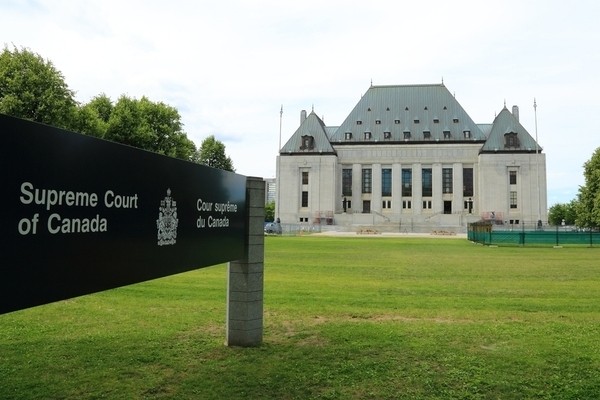West Fraser Mills found liable for death of contract worker

In West Fraser Mills Ltd. v. Workers’ Compensation Appeal Tribunal et al., the Supreme Court upheld a claim of workers’ compensation against a non-employer, West Fraser Mills, which as the license holder of the area of the forest where the accident occurred was the “owner” of the workplace as defined in Part 3 of B.C.’s Workers Compensation Act.
A tree faller died after being struck by a rotting tree while working within the area of a forest licence held by the appellant. West Fraser was not his employer, as he worked for an independent contractor. After investigating the incident, the Workers’ Compensation Board found that West Fraser Mills had failed to ensure that all activities of the forestry operation were planned and conducted in a manner consistent with s. 26.2(1) of the Occupational Health and Safety Regulation, adopted by the board pursuant to s. 225 of the act.
In addition, the board imposed an administrative penalty on West Fraser Mills pursuant to s.196(1) of the act, which permits the Board to penalize an “employer.”
These aspects of the board’s decision were confirmed by the review division. The Workers’ Compensation Appeal Tribunal dismissed West Fraser Mills’ appeal, but reduced the administrative penalty. The British Columbia Supreme Court and the Court of Appeal upheld the Tribunal’s order.
“A broad interpretation of s. 196(1) to include employers under the Act whose conduct can constitute a breach of their obligations as owners will best further the statutory goal of promoting workplace health and safety and deterring future accidents,” wrote Chief Justice Beverley McLachlin (as she then was), with Justices Rosalie Abella, Michael Moldaver, Andromache Karakatsanis, Richard Wagner and Clément Gascon concurring.
“This interpretation is also responsive to the reality that maintaining workplace safety is a complex exercise involving shared responsibilities of all concerned.”
At issue was the intention of the legislation and the standard of review. Section 225 of the Workers Compensation Act empowers the Board to “make regulations (it) considers necessary or advisable in relation to occupational health and safety and occupational environment.”
“Where the statute confers such a broad power on a board to determine what regulations are necessary or advisable to accomplish the statute’s goals, the question the court must answer is not one of vires in the traditional sense, but whether the regulation at issue represents a reasonable exercise of the delegated power, having regard to the statute’s goal,” McLachlin wrote.
But Donald Jordan of Harris & Company in Vancouver, who represented the appellant West Fraser Mills, argued before the court that “when the legislature uses a defined term, like employer, and owner, that’s a clear expression of legislative intention, and that’s what they want those terms to mean.
“Employer is a defined term, and that was the term used by the legislature in the penalty section” of the Workers Compensation Act, Jordan said. “But then they imposed a penalty on West Fraser, who was an owner, and met the definition of owner of this particular site.”
In three sets of dissenting reasons, Justices Suzanne Côté, Russell Brown and Malcolm Rowe agreed with the appellant that the imposition of an administrative penalty on West Fraser Mills was unreasonable.
It “was patently unreasonable to impose an administrative penalty — applicable only to breaches committed when acting in the capacity of an employer — on the basis that West Fraser Mills was found guilty of breaching its obligations as an owner under s. 26.2(1),” Justice Côté wrote. Section 26.2(1) of B.C.’s Occupational Health and Safety Regulation stipulates that “The owner of a forestry operation must ensure that all activities of the forestry operation are both planned and conducted in a manner consistent with this regulation and with safe work practices acceptable to the board.”
This article originally appeared on the Canadian Lawyer website, a Thomson Reuters publication.





